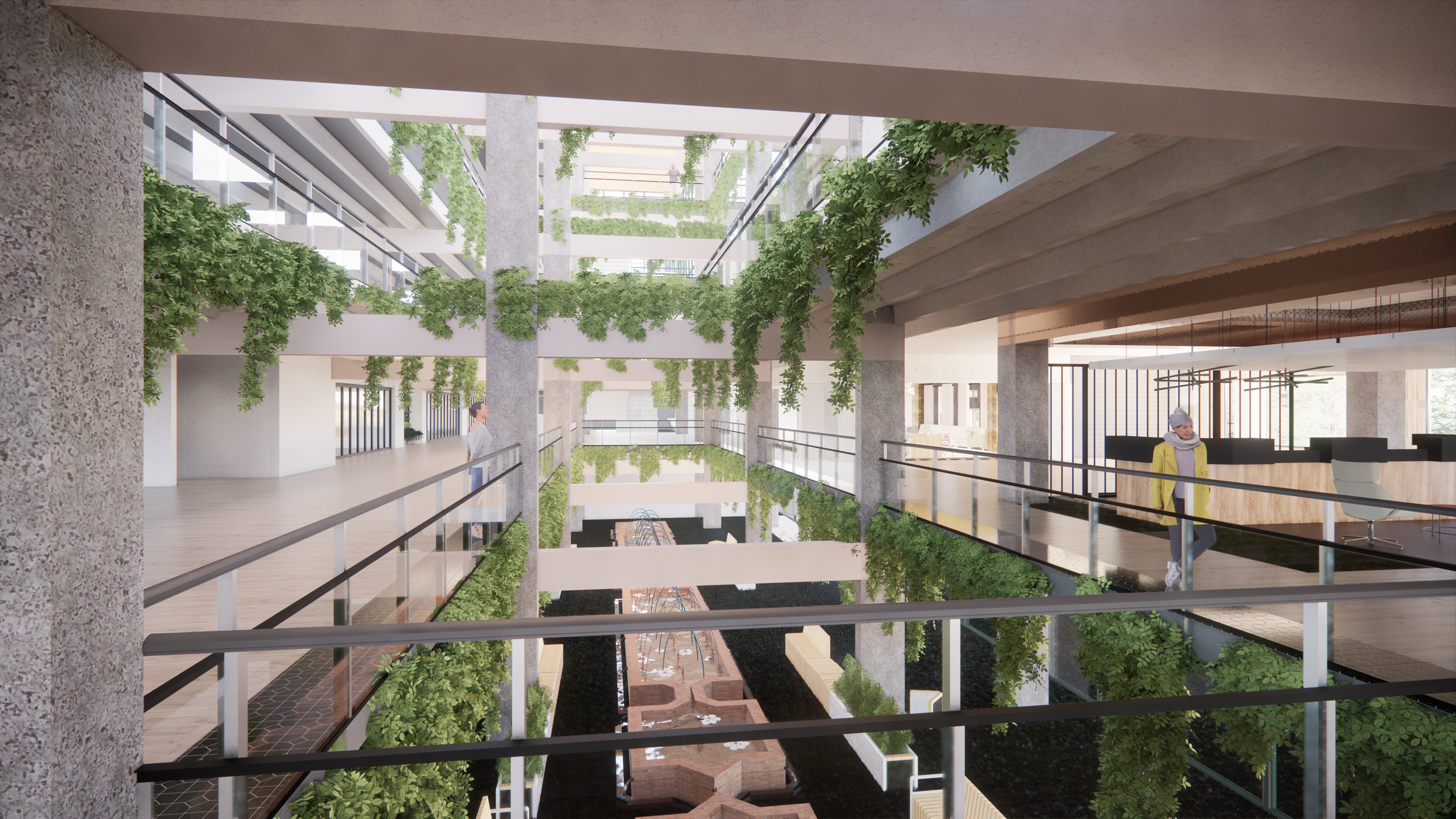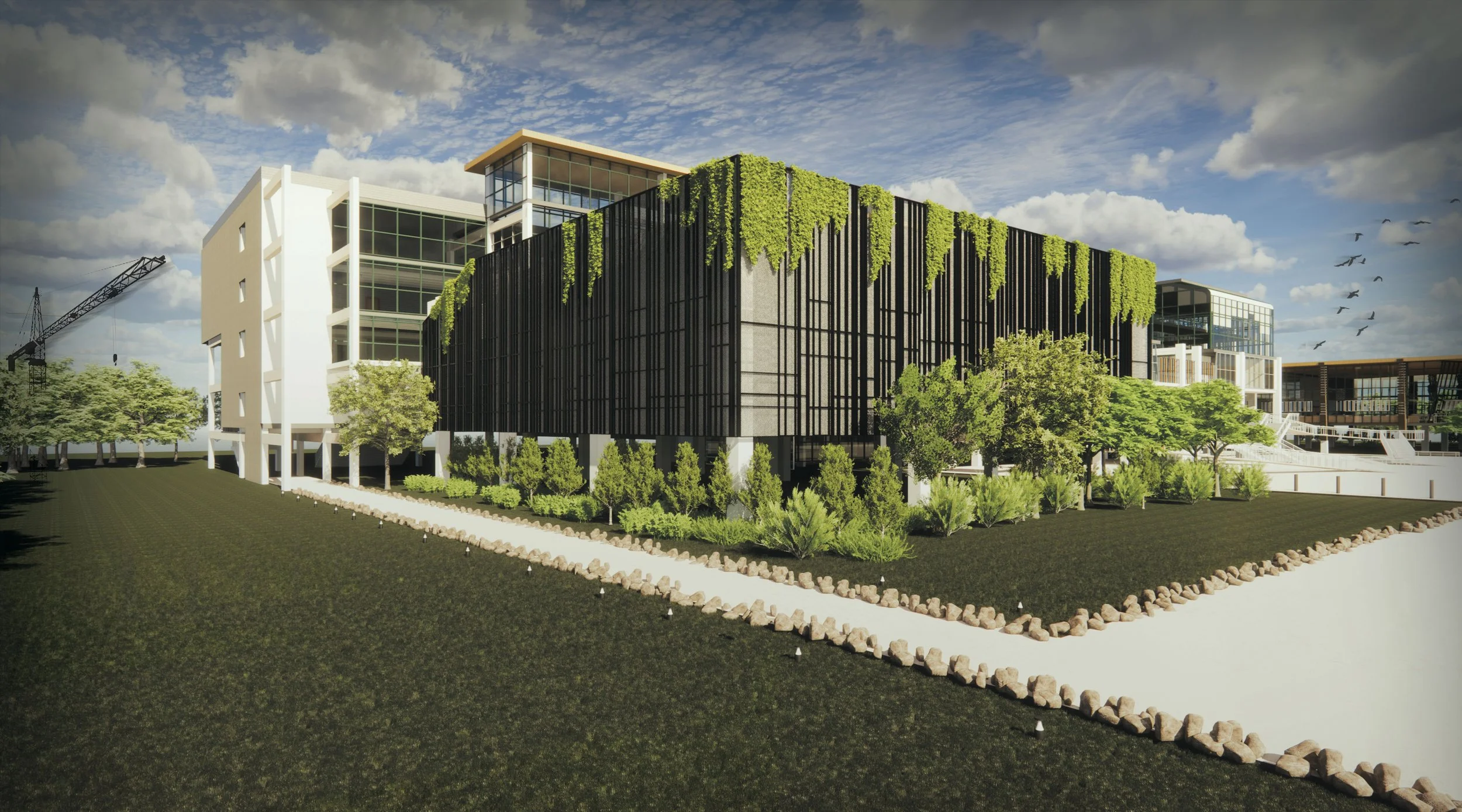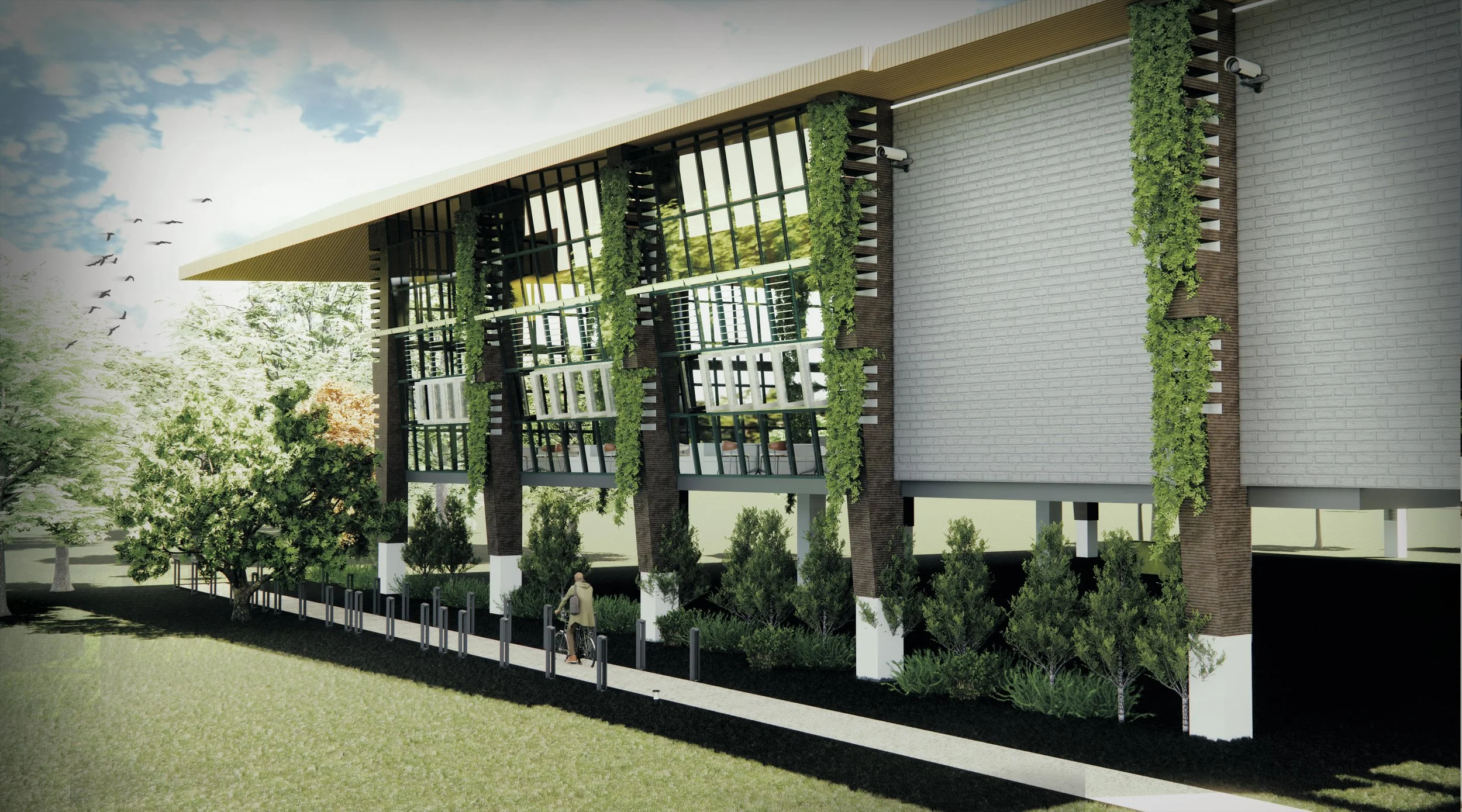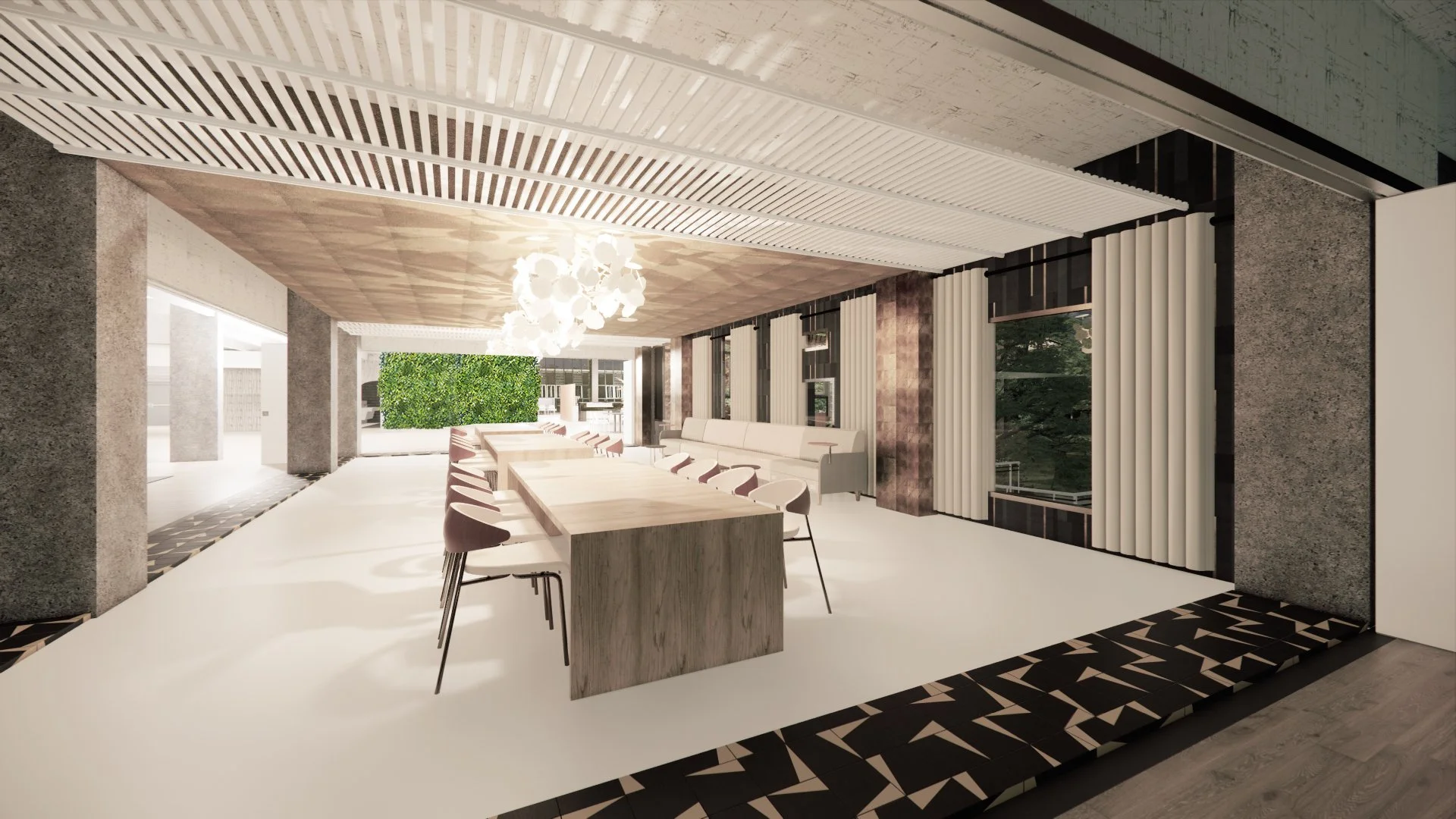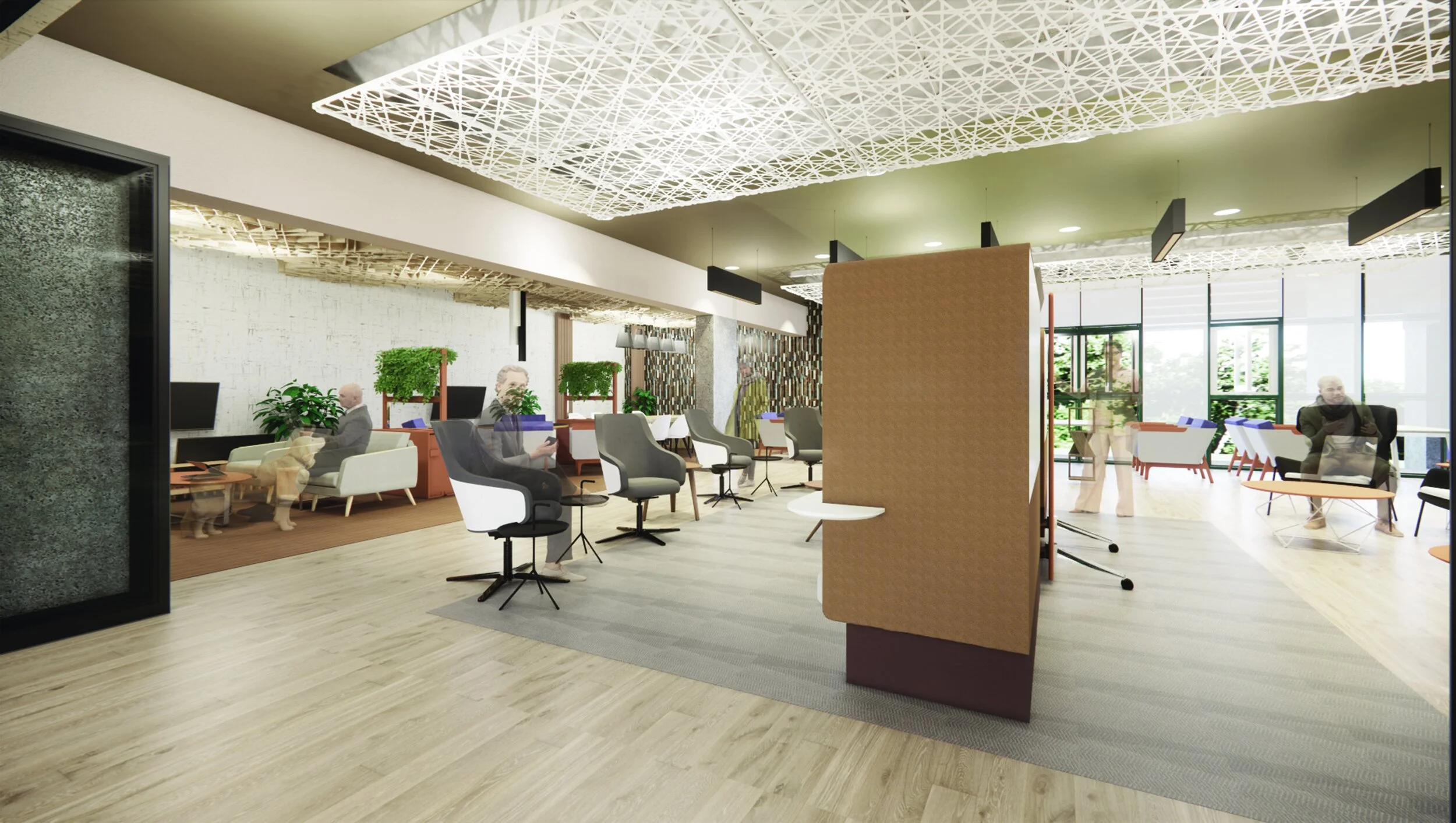Enhancing Health and Well-being through Natural Ventilation
Abrar Alahmadi // Adviser: Brian Newswanger
Enhancing Health and Well-being through Natural Ventilation
Metropolitan life imposes psychological and health pressures on its residents. Unavoidable crowds, narrow spaces, the pace of life, and air and visual pollution cause a remarkable decline in people's satisfaction and well-being. With rapid urbanization, city dwellers have lost touch with nature. Urban buildings are sealed against the outdoors, resulting in closed internal spaces devoid of quality air, natural light, and green spaces, which all negatively impact human behavior and welfare. Improvement efforts involve creating opportunities for escape and establishing a relationship between humans, nature, and interior spaces in urban landscapes. Incorporating natural ventilation, passive shading, programmatic orientation, shading devices, and features like an evaporative pool and green elements aims to design captivating interiors that encourage reevaluating the connection between urban living and the environment. This thesis seeks to create compelling environments that promote ecological sustainability, support the biophilia hypothesis, and offer social opportunities in urban settings. The ultimate goal is to design livable places that enhance well-being, foster a harmonious coexistence between humans and their urban surroundings, and promote a sustainable and fulfilling urban lifestyle.

